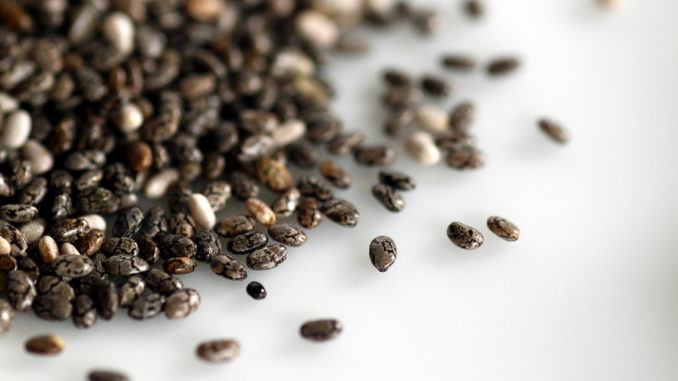
Fat-free and low-fat foods are more popular than ever. Most stores have entire departments dedicated to these products. Believe it or not, fat free doesn’t equal healthy. Some fats, especially those found in nuts, seeds, and oily fish, can actually help you lose weight and live longer. Ditching them from your diet is a big mistake.
Eat Fat to Burn Fat?
Most dieters would do anything to avoid fat. Some haven’t touched bacon or peanut butter for years. Yet, obesity rates are increasing. A growing body of research indicates that sugar, not fat, is the culprit behind obesity and chronic diseases. A diet rich in healthy fats can slim you down, keep your brain sharp, relieve pain, and help reduce the risk of heart disease.
If your goal is to lose weight, eat more fats. It may seem counterproductive, but it really works. The key is to choose good fats, such as those found in salmon, tuna, coconut oil, and avocado. These essential nutrients curb hunger and help preserve muscle whist on a diet. Make sure at least 25 percent of your daily calories come from fat. This will reduce your cravings for sugar, prevent muscle loss, and improve lipid metabolism.
Studies have found that high-fat diets balance ghrelin and leptin levels, which helps suppress your appetite.
They also enhance your body’s ability to burn stored fat for fuel. Sardines, avocado, nuts, and other fatty foods boost metabolism by raising adiponectin levels. This hormone increases the rate at which fats are broken down upon ingestion. A high-fat diet will also stimulate the release of PYY, CCK, and other hormones with a key role in satiety.
Good Fats, Bad Fats, Worst Fats
Not all fats are created equal. Some fight inflammation and promote cardiovascular health, while others have the opposite effect.
The Ideal Balanced Diet Should Be:
- High in monounsaturated and polyunsaturated fats
- Moderate in saturated fats
- Low in trans or hydrogenated fats
Monounsaturated Fats
Also known as MUFAs, monounsaturated fats increase good cholesterol and lower bad cholesterol, prevent plaque buildup in the arteries, and lower the risk of heart disease. You can find them in almonds, walnuts, peanut butter, olive oil, avocado, sesame seeds, and fatty fish.
Polyunsaturated Fats
Polyunsaturated fats are beneficial for your brain and immune system. When consumed as part of a healthy diet, they prevent depression, lift your mood, and lower bad cholesterol. These nutrients are found in oily fish, corn-fed chicken, tofu, nuts, flaxseeds, and seafood.
Saturated Fats
Saturated fats, which occur in meat and dairy, should be consumed in moderation. This type of fat will balance your hormones, increase testosterone levels, and improve liver health. It also enhances calcium absorption, leading to stronger bones.
Trans Fats
Trans fats, which are found in pizza, deli meats, hot dogs, pastries, margarine, hydrogenated oils, and junk food, should be avoided at all costs. These compounds increase bad cholesterol, make you fat, and cause heart disease.
Feel confused about which fats to consume?
Here are 10 High-Fat Foods You Should Consider Eating:
Walnuts
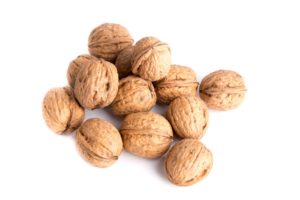
Rich in omega-3, walnuts help prevent cardiovascular problems and support cognitive function. They are also an excellent source of fiber, keeping you full longer between meals.
Coconut Oil
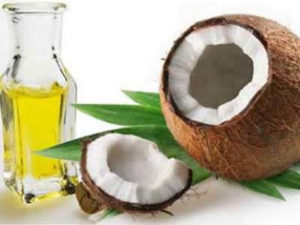
This superfood is rich in lauric acid and other healthy fats that promote weight loss, rev up your metabolism, and keep hunger at bay. Regular consumption of coconut oil helps prevent belly fat and causes your body to burn more calories at rest.
Olives

Olives contain monounsaturated fats and plant sterols, which help reduce bad cholesterol. They may also lower your risk of arthrosclerosis, obesity, heart attack, and high blood pressure. Soak them in fresh water for a few hours to reduce their sodium content.
Avocado
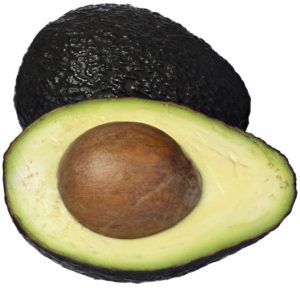
Low in carbs and high in fats, avocado is one of the most nutritious fruits on earth. This superfood keeps your heart in shape, improves digestion, and increases satiety.
Salmon
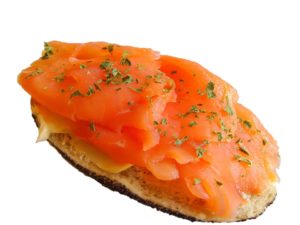
Loaded with protein and heart-healthy omega-3 essential fats, salmon should be a staple in your diet. It not only aids in weight loss, but also helps prevent depression, heart disease, arthritis, and mental disorders.
Chia Seeds
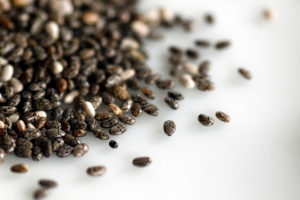
These tiny seeds contain ALA, an omega-3 fatty acid that supports cardiovascular health. They are also very high in fiber and protein, leaving you full and satisfied.
Extra Virgin Olive Oil
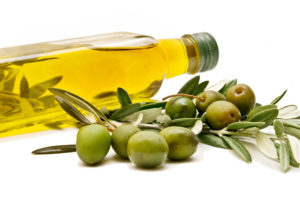
Olive oil is a staple of the Mediterranean diet for a good reason. Packed with essential fats and antioxidants, it fights free radical damage, reduces heart disease risk, and improves cholesterol markers.
Flaxseed
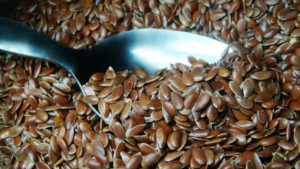
Flaxseed is high in fiber, protein, and fatty acids. This combo keeps your blood sugar levels stable, reduces hunger, and boosts cardiovascular health. To reap the benefits, add flaxseeds to salads, quinoa dishes, oatmeal, and homemade desserts.
Peanut Butter
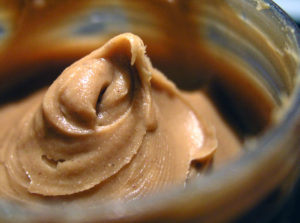
Include peanut butter in your diet to keep hunger at bay and boost your metabolism! This delicious treat is rich in monounsaturated fats that reduce hunger and satisfy your sweet tooth instantly.
Greek Yogurt
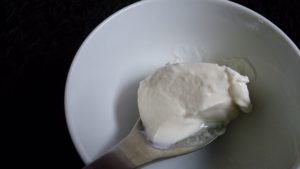
The fats in Greek yogurt suppress your appetite and leave you satisfied after a meal. This type of yogurt also contains probiotics, which help restore gut flora and improve digestive health. Just make sure you choose a brand with no added sugar.

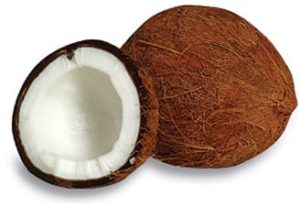
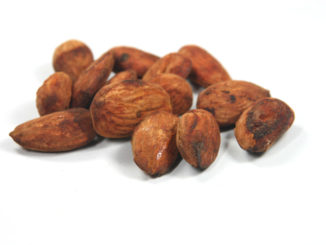

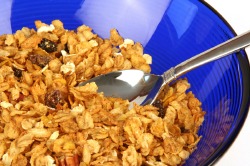
Be the first to comment